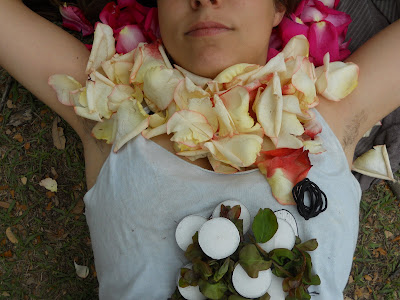Nina Katchadourian

Annette Messager



Fritz Kahn

Where am I?
Where will I go?
Where have I been?
Where shall I go?
What shall I pack for the trip?
“To each, her or his private meridians. To each, a unique projection.”
“It seems somehow easier to conjure up possibility out of a map than out of the sheer ether.”
“Out of one territory, one map, can bloom a thousand geographies.”
“The map is a powerful tool of what Tolkien calls 'sub-creation': the invention of a secondary world.”
“That was my first taste of orienteering – crashing through a landscape without paths, provisioned only with vague bearings and a distant destination. 'Orienteering' is such an odd but impressive word that it has always stuck with me, and in fact moves me to propose a related concept to describe a process somewhat like orienteering but more personal, more historical, more associative, more metaphorical, perhaps more spiritual: 'orientating,' or crashing through the larger landscapes of memory and experience and knowledge, trying to get a fix on where we are in a multitude of landscapes that together compose the grander scheme of things. Orientating begins with geography, but it reflects a need of the conscious, self-aware organism for a kind of transcendent orientation that asks not just where am I, but where do I fit into this landscape? Where have I been? Where shall I go, and what values shall I pack for the trip? What culture of knowledge allows me to know what I know, which is often another way of knowing where I am? And what pattern, what grid of wisdom, can impose on my accumulated, idiosyncratic geographies? The coordinates marking this territory are unique to each individual and lend themselves to a very private kind of cartography.”
“I have roamed across state lines and oceans and continents, backwards in time, each thought colored according to a personal legend corresponding to the elevation and depressions of my private humors: pride, wonder, sadness, remorse.
“Like memory, geography is associative. In this process I can orientating we all carry a personal atlas in our brains (which obliges this psychic gazetteering because it happens to be the most sophisticated, supple map-making device ever created). We flip through it with synaptic rapidity; we crash just so though a wilderness of neurons primed and aligned by experience, traveling a decade in an instant, traversing hemispheres in the span of a few axons, snagging now and then on the nettles of sad recollection, exhilarated by the sheer expanse of territory covered, surprised at how our brains can organize so much information along emotional latitudes, their very architecture a kind of microscopic merging of all the cartography we have acquired and stored. We are damned by the arrogance with which we ignore the immensity of the territories we presume to tame with our absurdly precise instruments of measure, and redeemed by a cunning, even courageous naïveté that persuades us to believe that they are approachable, knowable, chartable.”
“It is hard to look at a map without sensing, in our bones, private hopes and secret fears about change...I see: An erasure, perhaps, of the laid-down lines of the past. A willingness to draw new meridians. A reconfiguring of the private globe. A silent earthquake.”
“We have expanded notions of the chartable world, creating a holistic, multidimensional cartography. There are maps to anywhere: chromosomes, galaxies, the brain, the cell, the spaces between atoms, cracks in the double helix, the edge of time. If maps invite travel, these new maps inspire journeys of an altogether different, more associative sort. At the same time, they still connect to our traditional geographies and are potential destinations of the orientating process; the lend themselves to a form of bushwhacking that is more interior, philosophic, imaginative.”
“Another message, both surprising and exhilarating, is that no matter how distant or abstract the landscape, each has resonance for our more terrestrial, down-to-earth peregrinations. These disparate landscapes have nothing in common except the imaginer; as if I blaze paths between dimensions that exist nowhere but in my head.”
“We need some secure oasis of order, even if only a memory (or a fiction), as a home port for our various explorations, our attempts to make sense of the unknown. This is the place we call 'home,' which appears on page one of every private atlas. Home can literally be home, an abode, or our notion of family, or even a comfortable spot apart from our dwelling place, like work; whatever it is, home is where the lines are straight, the order clear, where even disorder seems predictable and the displacements tolerably temporary. And perhaps that is why when disorder invades the home – when illness, death, divorce, or any of a dozen domestic estrangements upsets the order – our metaphors for the ensuing emotional distress are so often geographical: we are lost, disoriented, have lost our bearings, we are at sea.”
“As we nose around these new-found territories, we may begin to create and ever more complex and useful geography of survival: atop our maps of land, sea, planet, chromosome, and cosmos, we superimpose maps of pain, of revelation, of joy, of disappointment. To each emotion, there is a pin on the map, the pattern of each accumulating and filling in until they have the appearance of growth rings.”
“The most important thing a map shows, if we pause to look at it long enough, if we travel upon it widely enough, if we think about it hard enough, is all the things we still do not know.”
 Change, freedom, invention, and liberation are all attributes of this rune. Drawing it indicates a pressing need within to break free from constricting identification with material reality and to experience the world of archetypal mind.
Change, freedom, invention, and liberation are all attributes of this rune. Drawing it indicates a pressing need within to break free from constricting identification with material reality and to experience the world of archetypal mind.















































